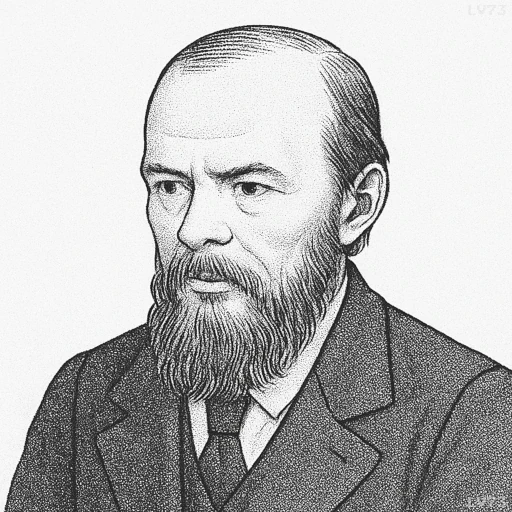“If you were to destroy the belief in immortality in mankind, not only love but every living force on which the continuation of all life in the world depended, would dry up at once.”

- November 11, 1821 – February 9, 1881
- Born in the Russian Empire
- Novelist, philosopher
table of contents
Quote
“If you were to destroy the belief in immortality in mankind, not only love but every living force on which the continuation of all life in the world depended, would dry up at once.”
Explanation
Dostoevsky’s statement reflects his deep belief in the spiritual and existential significance of belief in immortality—or, more broadly, in the continuity of life beyond the material world. According to Dostoevsky, the belief in immortality is not merely an abstract or religious concept, but the very foundation of all human action, particularly the motivations that drive love, sacrifice, and meaningful existence. If humanity were to lose this belief, Dostoevsky suggests that life itself would lose its purpose and meaning, leading to a collapse of the very forces that sustain human relationships and societal cohesion. Without a belief in something beyond the material, individuals would have little incentive to act in ways that transcend self-interest or short-term gratification—essentially, all the virtues that make life worth living, like love, compassion, and sacrifice, would evaporate. Dostoevsky saw immortality not just as a religious doctrine, but as a moral anchor—a source of strength that gives meaning to the sufferings and struggles of life.
This quote aligns with Dostoevsky’s exploration of the moral consequences of atheism and the rejection of spiritual beliefs in his works. For example, in The Brothers Karamazov, the character Ivan Karamazov grapples with the idea of a world in which suffering seems to have no ultimate purpose, and he challenges the existence of a benevolent God who would allow such suffering. For Ivan, the absence of immortality—and the ultimate meaninglessness of life that it suggests—drives him into a state of despair and rebellion against both God and humanity. Dostoevsky presents Ivan’s crisis as not just an intellectual question but as a moral and emotional dilemma: without immortality, love and goodness lose their ultimate value, and life becomes an endless cycle of pain without any redemption. Dostoevsky’s other works, like Crime and Punishment, explore similar themes, showing characters who are either driven or destroyed by their beliefs in immortality and ultimate justice.
In the modern world, this quote continues to resonate with our ongoing debates about meaning and purpose in life. In an age where secularism and materialism are more prevalent, many people feel disconnected from the larger spiritual or transcendent goals that might otherwise guide their actions. While not everyone subscribes to the idea of immortality in a religious sense, the search for meaning in life remains a powerful force. Dostoevsky’s warning speaks to the psychological and moral risks of a society where people lack a sense of a greater purpose. The decline of traditional religious beliefs has led to an increasing sense of existential uncertainty, with many people turning to consumerism, career ambition, or individual pleasure as substitutes for deeper, more spiritual sources of meaning. Dostoevsky’s quote suggests that, without belief in something beyond material existence, people may lose the sense of sacredness in their relationships and in life itself, leading to a moral decay in which love, sacrifice, and compassion lose their significance. Ultimately, Dostoevsky argues that our capacity for love and our moral strength depend on our belief in a higher, eternal purpose that transcends our fleeting lives.
Would you like to share your impressions or related stories about this quote in the comments section?




